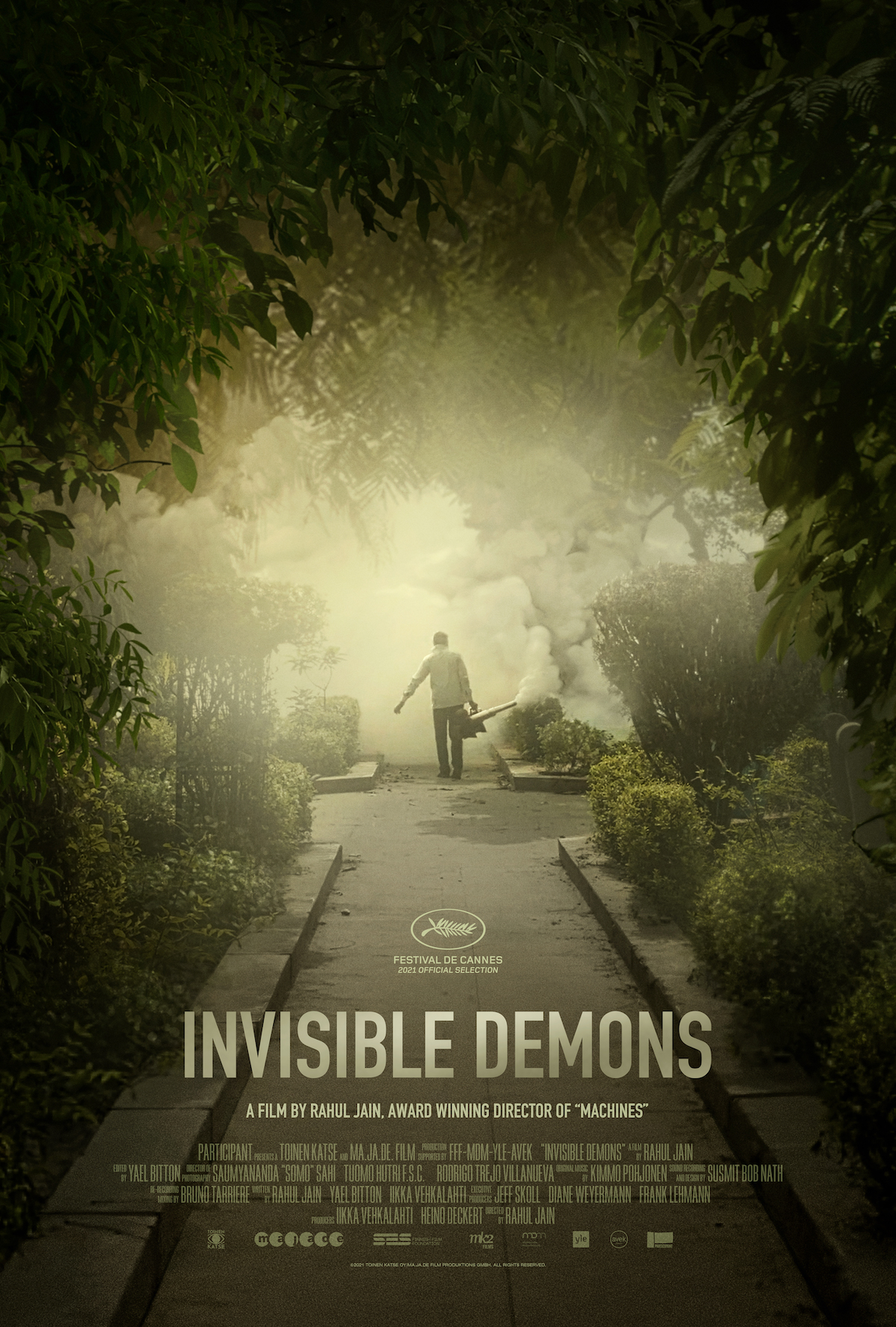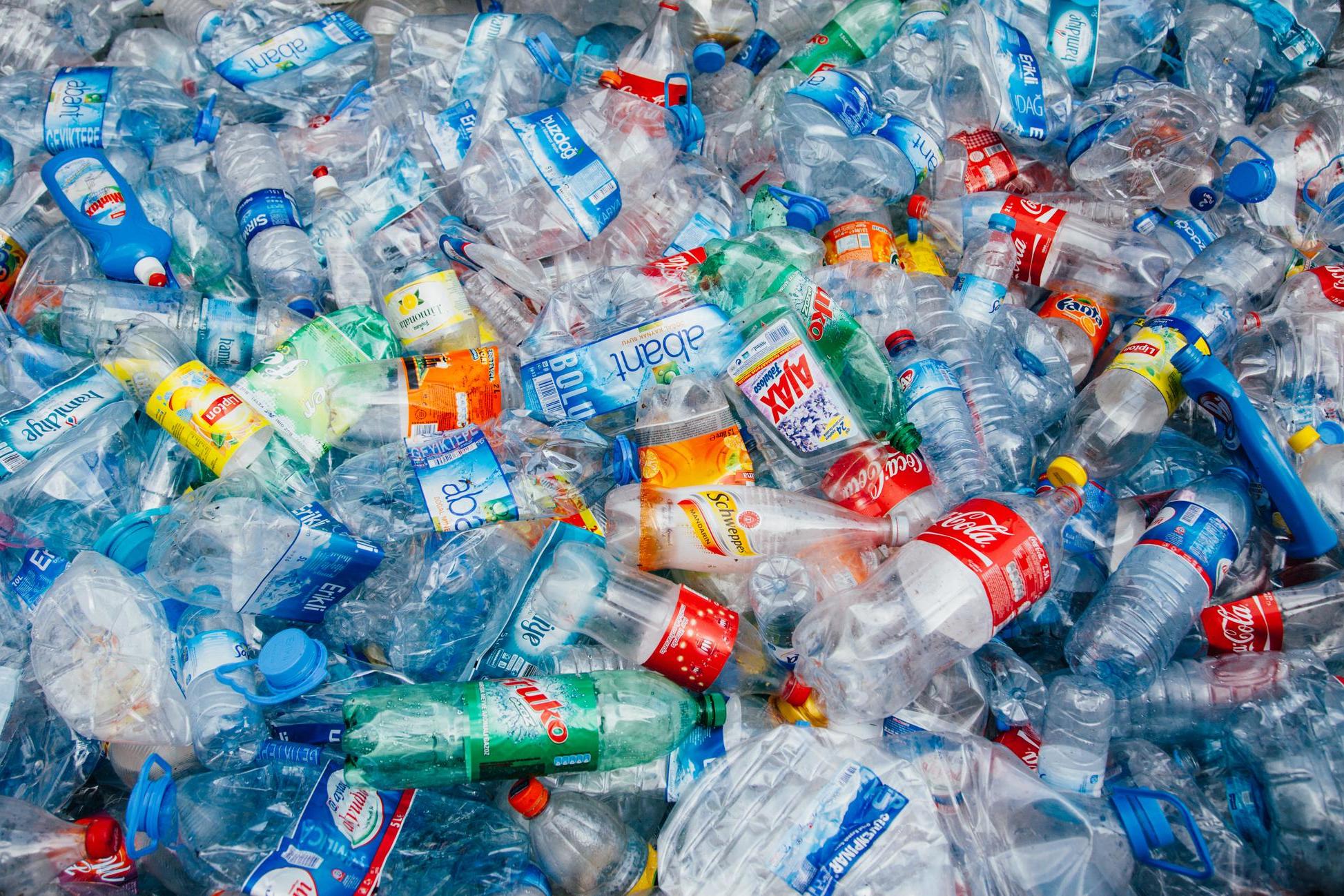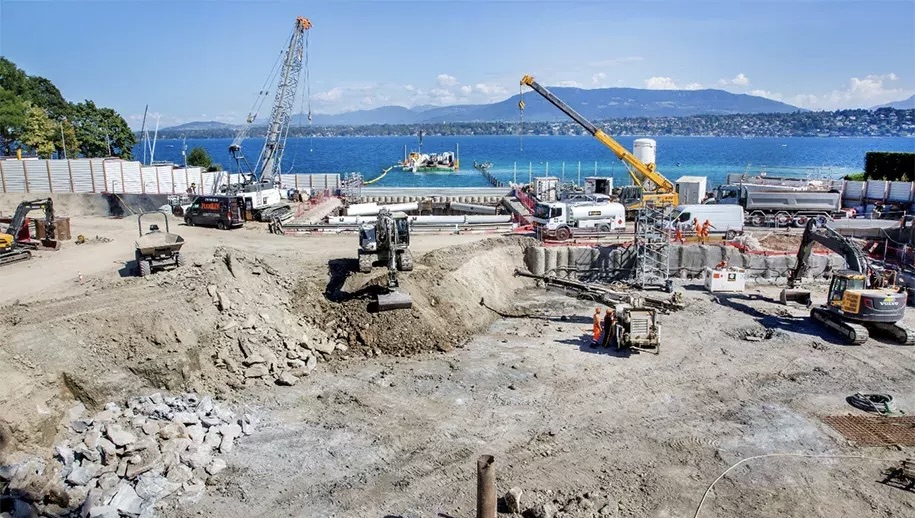By Sabine Ebanks, Year 12
On Friday the 11th of March, the award-winning filmmaker Rahul Jain visited M. Gatta’s Year 12 French class to discuss his latest film, Invisible Demons, a documentary on pollution and climate change in New Delhi. The film was initially presented at the Cannes Film Festival in 2021 to positive reviews; more recently, it featured in this year’s FIFDH, Geneva’s Film Festival and Forum on Human Rights, winning the Prix du Jury des Jeunes in the section Documentaires de création. LGB students had the opportunity to ask Mr. Jain questions about his film and his firsthand experiences with the pollution in Delhi, where he is from.
Some of the questions from the students and Mr. Jain’s responses have been edited for length and clarity.
What are some of the symptoms you experience from pollution?
If you want to go out for a walk at the peak pollution season, you can’t take full breaths. When you try to breathe completely, to the full capacity of your lungs, it really is irritating. It feels like there’s something in the air that’s not, like, normal. At some point you start to cough constantly. It’s basically like smoking fifty cigarettes a day, depending on the time of the year. It just physically affects your lungs a lot, but also your eyes and your nose. And of course, that’s just the physical effect. But the mental effect is that it clouds your judgement. It makes it very difficult to focus. I’ve read and hear that it leads to depression, it makes people very sick. Apparently it’s the biggest killer, but you can’t really prove why someone got sick. The doctor will say the heart failed as a cause of death, but they won’t be able to say how the heart failed.
Does pollution affect life expectancy?
It kills people on a really really high frequency. But it’s very difficult to determine exactly how your life was shortened; you can’t prove it factually, empirically. There are no equations yet that can prove that being in this city for this amount of time took away this amount of time from your life.
Is there a way that you see things changing in terms of the pollution issue? How do you think that could happen?
You know like, individual action is a nice thing, and to believe that you’ll eat less meat or take less flights or use public transport more, all of these things are very accessible today, but what a government does is a kind of regulation of a much higher level. You might collect a thousand, ten thousand, hundred thousand, million people as individuals, but imagine all the effort that would take – which is not a bad thing, you know, an ocean is made of drops – but a government works from the top. I think it’s the governments of the world that need to unify and make pretty strong laws that are implemented and enacted and carried out. So it’s good that you have individual actions that change things, but I think if you should find ways to understand how your democracy works and what kind of leverage you have. I haven’t seen things change in Delhi, even though people are trying really hard now, it hasn’t really become visible yet, the changes. It takes time, apparently, that’s what everybody says. If I could wave a wand and do it, I would, but I have like no power. I can talk about it, think about it.
Do you think that art can change the world?
Art can only affect the human brain. It’s just the set of ideas and feelings put together in like a respective medium. What it does to you is your openness. In that sense, it couldn’t be instructive, it shouldn’t feel like an instructional manual about what to do or how to do something. What it can be is a very open discourse of how you feel as an artist, and hopefully it’s presented in a way that’s enjoyable, in some capacity. It’s a way to become engaged with the world.
It’s interesting to have the perspective of an artist and that neutrality.
I mean truth is subjective. But what you can do with making a film is hopefully bring everyone on the same table, or try to have a conversation. When I was a teenager I had never really met an artist until I went to art school, and I had no perspective of what it means to be an artist or a creator.
Did you not worry that this film is perhaps negative publicity for Delhi that could be a tourist deterrent?
I don’t think it’s my role as an artist to make an advertisement for my city. I think, let’s talk about somebody like Jean-Jacques Rousseau or Jean-Luc Godard from Geneva, these are like the premier-most artists or philosophers that have come from the city. Even though it may be an extremely well-oiled and functioning city, they still find ways to poke holes in it. The film is kind of a social criticism, which I think art does a lot better than propaganda about how good a place is. Once you have a relationship to a place, and you want it to get better, you don’t think of negative or positive publicity – you think of the truth. Of course I have family relatives who are like ‘why are you only showing this part’ and they’re all bourgeois ladies and very happy to talk about whatever parties they have, which I find completely banal and lame, and this is not the life of most people living on the streets. This is the perspective of women or men who have air conditioners and air purifiers, like me, and they are the people that pollute the most. They wake up in their homes, a building, they go in a car, a closed enclosure, they go to a gym, they go to their office, they go to their office, they go to hotels, or restaurants – everything is indoors. They never experience the world outside. And I grew up like this. Once I moved to California to study, it really changed my mind, because it’s a state which has a lot of diversity of landscapes, and I was just completely shocked, thinking ‘Wait, where did my childhood go? What was I doing?’. I felt so stupid being a city boy. Of course nature is not perfect or pristine. But I do think growing up in a city like this, a megalopolis, it really takes you away from nature.
What’s next for you?
I was actually a really bad student, I have ADHD and I didn’t take medication for it; I’m writing an application right now for a TV series I want to develop and I’m really struggling with it. Even though everything is there, I’m not good at presenting my ideas on paper, and that’s what I need to do right now. It’s a TV series called Falling Star and it’s a limited miniseries about a child miner in the Congo that mines for cobalt; a Silicon Valley social media executive, like Mark Zuckerberg but someone even more sinister; and a hacker that works for the Chinese government in Beijing, and how their lives come together.
Many thanks to Rahul Jain for coming to speak to everyone! The film Invisible Demons is available online at the FIFDH website until midnight tonight (14th March) and will be available on the streaming platform Mubi later in 2022.



